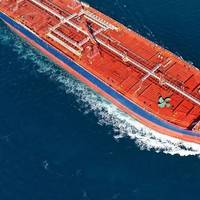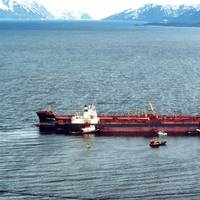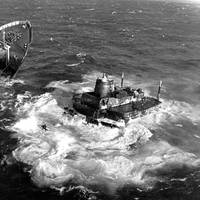Committed Owners Supporting Green Financing Landscape

Hamburg-based ship finance platform oceanis’s Q4 State of Ship Finance Report comes with a thank-you to shipping companies that are committed to the green transition.Over the past decade, oceanis has seen large changes to the ship financing landscape towards greener projects. The most obvious green financiers are the Poseidon Principles banks, the initiative launched in 2019 whose signatories manage 70% of the world’s shipping loans. At the same time, many other banks and funds are moving away from financing ‘brown’ assets and trades.
Baltic Exchange Adds Tanker OPEX Assessments

The Baltic Exchange has added quarterly assessments of the cost of operating crude oil carrying Aframax tankers and clean product carrying Medium Range (MR) tankers to its growing suite of shipping investor tools.The new service is based on assessments made by independent third-party ship management companies Anglo Eastern, Fleet Management and V-Ships. Using the full suite of independent Baltic Exchange indices, investors are now able to benchmark daily vessel earnings, running costs, sale & purchase and recycling prices.
#SNAME125

Significant moments in naval architecture & marine engineeringIn March 1989, oil tanker Exxon Valdez spilled 11 million gallons of crude oil after running aground in Alaska's Prince Williams Sound. The oil spill stood as the largest in U.S. history until the 2010 Deepwater Horizon disaster in the Gulf of Mexico.The Exxon Valdez incident, while certainly not a bright spot in maritime history, led to broad changes across the industry, including new design requirements for oil-carrying vessels.The October 2018 edition of Maritime Reporter & Engineering News…
Thailand Accedes to Conventions Covering Oil Pollution Damage
Thailand has become the latest State to accede to the international conventions on Civil Liability for Oil Pollution Damage (CLC) and the Establishment of an International Fund for Compensation for Oil Pollution Damage (Fund). The CLC Convention ensures that compensation is available to people who suffer oil pollution damage from maritime casualties involving oil-carrying ships, and places liability on the owner of the ship from which the polluting oil escaped or was discharged. The International Oil Pollution Compensation Funds (IOPC Funds) provide additional financial compensation for oil pollution damage that occurs in Member States, resulting from spills of persistent oil from tankers.
Snowstorm hits Traffic in Istanbul; Straits Closed
A snowstorm forced the closure of Turkey's key shipping straits and sweeping flight cancellations on Saturday, while hazardous roads left many drivers stranded overnight in Istanbul, a city of 15 million people. Turkish Airlines cancelled hundreds of flights in and out of the city's main Ataturk airport and state-run Anadolu news agency said dozens of planes were diverted to other airports because of the heavy snowfall, which began on Friday evening. About 6,000 of its passengers were transferred to hotels on Friday evening due to the cancellations and 20,000 meals were distributed to those stranded at the airport, Anadolu said. Pegasus Airlines cancelled some 200 flights in and out of Sabiha Gokcen airport, on the Asian side of the city.
PCA Announce New Booking & Service Tariff
The Panama Canal Authority (PCA) announced the following new booking and PCSOPEP tariffs for the neopanamax vessels and modifications to other pilot related tariffs, in preparation for the upcoming opening of the neopanamax locks. Elimination of the tariff for Daylight Transit requested with less than 3 days in advanced of reserved date. All requests for daylight transit, if approved, will be assessed Tariff item #1050.0247 ($30000.00). SUBSTITUTIONS BETWEEN A BOOKED VESSEL AND NON-BOOKED VESSEL. These substitutions will not incur a charge provided they are requested at least 14 days in advance of the vessel’s booking date, instead of the previous 30 day requirement.
Interview: Oil Spill Repsonse Insights from MSRC's Benze: Steven T. Benz, President and CEO, Marine Spill Response Corporation (MSRC)

As President and CEO of MSRC, Steve Benz presides over the largest oil spill response company in the United States (and worldwide). In that position since January 1996, he has during that tenure, overseen several critical phases in the Company’s evolution. These include a major restructuring in the late 1990s to make it more competitive; growth throughout the 2000-2009 period, including acquisition of several companies; leadership in overseeing MSRC’s role in responding to the 2010 BP spill in the Gulf of Mexico…
Disasters at Sea & Their Impact on Shipping Regulation

The history of marine safety is soaked in water and written in blood. “I think that most people will tell you that changes in marine safety are almost exclusively disaster-driven,” agrees Dr. Josh Smith, a professor at Kings Point and interim director of the American Merchant Marine Museum. It hasn’t always been that way. Actually, it’s been worse. Despite some efforts early on to exert some control over shipping practices, going to sea has been accepted as a risky undertaking as long as man has floated vessels.
Non-tank Vessel Response Rules – Their Impact Examined
Long awaited, much hyped, the new rules require compliance in January. Will industry and more importantly, the response community, be ready? In September, the U.S. Coast Guard published the long awaited Non-tank Vessel Response Plan (NTVRP) and Other Response Plan regulations. The U.S. Coast Guard cites “Improved preparedness and reaction to an incident, including a worst case discharge, and improved effectiveness of shore-side and onboard response activities” as the primary benefits of the new rule. For all affected vessels, a mandatory compliance date of January 30, 2014 looms large the porthole. The regulations impact self-propelled non-tank vessels of 400 gross tons or greater that operate in navigable waters of the United States and carry any kind of oil as fuel for main propulsion.
Salvage & Marine Fire Fighting Non-Tank Vessel Response Plan Regulation Announced
The U.S. Coast Guard has published the long awaited Non-tank Vessel Response Plan (NTVRP) and Other Response Plan regulation in the federal register dated September 30, 2013. Mandatory compliance will be required of all applicable vessels by January 30, 2014. These regulations impact self-propelled non-tank vessels of 400 gross tons or greater that operate in navigable waters of the United States and carry any kind of oil as fuel for main propulsion. The NTVRP requirements for planning of response services are scaled to oil carrying capacity (i.e. risk). Thus, for small non-tank vessels with less oil carrying capacities, there are fewer functional planning requirements. The new rule requires that non-tank vessel owners operating in and out of U.S.
Offshore Design: The Future is Now
The maritime industry has an image problem. Perceived to be an aging industry, many players in the maritime niche deal daily with the very real problem of replenishing its employment ranks, from desk jobs designing and operating vessels, to those at sea and in the construction yards. While the problem is multi-faceted and without a clear solution, this article is not about problems. It's about hope and the future. Traditional industries such as maritime are often lost to the youth, as higher-profile, more glamourous opportunities are found in computing and entertainment, for example. Simply put, many bright minds are lost before the battle has begun.
Tank Barge Industry Leads the Way in Double Hull Conversions
The American Waterways Operators AWO says that the tank barge industry is leading the way as American companies make the multi-billion dollar investment required to transform the nation's fleet of oil-carrying tank vessels into environmentally friendly double hulls. More than 65 percent of the U.S. tank barge fleet is double-hulled today, more than 13 years before the 2015 deadline set by Congress in the landmark Oil Pollution Act of 1990 (OPA 90). Even as government and industry sources agree that there is a surplus of tonnage on the market today - more vessels than are needed to meet U.S. demand for oil transportation - America's tank barge operators are leading the transition to an all-double hull fleet. According to U.S. Coast Guard data, U.S.
FRP Pumps Offer Lasting Results
There's hardly a marine application — onboard or ashore — where seawater pumps are not considered critical to a vessel's operation or purpose. The ability to pump seawater aboard most vessels represents only a part of their liquid pumping requirements; in many cases other liquids such as caustics, corrosives, and alkalis need to be transferred, either from ship to shore or vice versa. For these kinds of harsh applications many shipboard pumps are constructed of metals designed to withstand the continuous flow of severely corrosive liquids. Typically, these metals include Monel and K-Monel, titanium, nickel bronze, alloy 20 steel, and 316 stainless steel.
Are Tankers Setting A Course For Stability?
To characterize as stable the business of carrying oil aboard tankers of any size or route would be foolhardy at best. But as curious as the market's undulations may appear to those on the outside, it is in fact the market's instability that serves as stability. Owning and operating a fleet of petroleum carrying tankers has undoubtedly become a much more scrutinized and legislated endeavor than any time past. The eyes of the world, individual nations and even specific "environmentally sensitive" regions are on constant watch, prepared to strike with the broad sword of legal action in the unlikely event of an incident or catastrophe. The heightened sense of legal responsibility has undoubtedly changed, and will continue to shape the tanker business.
Setting a Course For Stability?
To characterize the business of carrying oil aboard tankers of any size or route as stable — would be foolhardy at best. But as curious as the market's undulations may appear to those on the outside, it is in fact the market's instability that serves as stability. Owning and operating a fleet of petroleum carrying tankers has undoubtedly become a much more scrutinized and legislated endeavor than any time past. The eyes of the world, individual nations and even specific "environmentally sensitive" regions are on constant watch, prepared to strike with the broad sword of legal action in the unlikely event of an incident or catastrophe. The heightened sense of legal responsibility has undoubtedly changed, and will continue to shape the tanker business.
Panama Canal Boosts Emergency Preparedness
The Panama Canal Authority (ACP) is constantly working to enhance the Canal's safety and reliability, which includes emergency preparedness. On January 1, 2005, the ACP implemented new regulations to help plan for and mitigate the effect of oil spills. Called the Panama Canal Shipboard Oil Pollution Emergency Plan (PCSOPEP), its goal is to provide for the expeditious and effective reaction to an oil spill and reduce its possible impact to the Canal and the local environment. All vessels with a 400 metric ton or more of oil carrying capacity, as fuel and/or cargo, are required to submit a PCSOPEP at least 96 hours prior to arriving in Canal Waters.
ISU Warns that Environmental Salvage is Undervalued
Salvage services with environmental objectives are undervalued, according to the International Salvage Union. ISU President Joop Timmermans told some 200 delegates at the March 2003 Fourth International Marine Salvage Conference: “In the ISU’s view, environmental defense – as a function of salvage – is undervalued. The ISU–sponsored conference was held at the London headquarters of the International Maritime Organization (IMO). Joop Timmermans said the salvor’s reward for his traditional role, property recovery, was related to the value of that property. As for any additional value placed on environmental – or public interest – salvage services, the Special Compensation provided under Article 14 of the Salvage Convention is confined, essentially, to the reimbursement of expenses.





